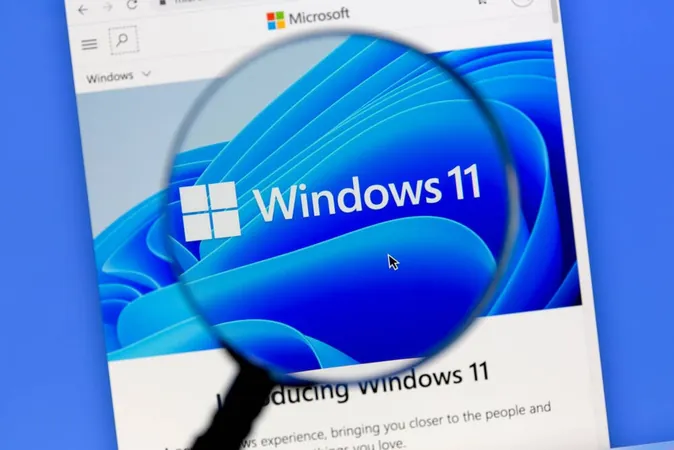
Unlocking the Future: Windows Intelligence Set to Transform AI Features in Windows 11
2024-11-12
Author: Wei Ling
Introduction
Microsoft is on the verge of rebranding its AI-driven functionalities under the new name "Windows Intelligence." This shift is expected to consolidate and enhance how artificial intelligence is integrated into the operating system, even as some controversial features like Recall will remain in their current form.
Rumors and Developments
Rumors about Windows Intelligence have been swirling for some time, but an official confirmation is still pending from the tech giant. Recently, Tero Alhonen shared a glimpse of possible settings for apps utilizing Microsoft’s AI services. Furthermore, a user known as Albacore uncovered a placeholder page in a Windows 24H2 build specifically for Windows Intelligence settings, sparking excitement among tech enthusiasts.
The Branding Challenge
Microsoft has heavily invested in artificial intelligence technologies, but the term "AI" alone lacks distinctiveness, leading to a more generic perception. Apple’s strategy of branding its AI as "Apple Intelligence" has garnered attention for successfully keeping the familiarity of the abbreviation "AI" while solidifying its own brand identity. Microsoft's endeavor with Windows Intelligence seeks to achieve a similar effect, although truncating "Windows Intelligence" to just “WI” isn’t as catchy as Apple's solution.
Community Reactions
Discussions around the redesigned Copilot feature and the postponement of Recall have ignited debates within the Windows community. However, it appears that neither will undergo a rebranding to Windows Intelligence in the immediate future. Instead, Windows Intelligence could emerge as a comprehensive umbrella term for all AI technologies within the Microsoft ecosystem, potentially enabling users to manage how AI applications access and utilize their data seamlessly.
AI in Action
As Microsoft strides forward, it has already rolled out AI-enabled features like Notepad to Windows Insiders, highlighting the company's commitment to integrating AI into everyday tools. Meanwhile, industry analysts predict that the "killer app" for AI may still be several years away, which raises questions about the pace of innovation.
Windows 11 vs Windows 10
Windows 11 is gaining traction, gradually closing the gap with its predecessor, Windows 10. To further support users, Microsoft extended Windows 10's lifecycle for another year, albeit with a fee of $30, which could influence user migration strategies.
Historical Context
Interestingly, the term "Windows Intelligence" had previously been associated with security updates issued via Windows Update, although these updates do not directly align with Microsoft Defender definitions. This new branding seems poised to encompass broader AI-related features across the operating system, moving beyond just security.
Conclusion
As Microsoft continues to integrate AI technologies at an accelerating pace, the gathering of AI settings under the Windows Intelligence banner will streamline user experience. With features like generative AI already appearing in applications such as Notepad and Paint, the introduction of a centralized control system for AI functionalities promises to not only enhance usability but also empower users in managing their digital interactions better.
Final Thoughts
Stay tuned as Microsoft gears up to define the future of AI with Windows Intelligence, reshaping the landscape for users everywhere!



 Brasil (PT)
Brasil (PT)
 Canada (EN)
Canada (EN)
 Chile (ES)
Chile (ES)
 España (ES)
España (ES)
 France (FR)
France (FR)
 Hong Kong (EN)
Hong Kong (EN)
 Italia (IT)
Italia (IT)
 日本 (JA)
日本 (JA)
 Magyarország (HU)
Magyarország (HU)
 Norge (NO)
Norge (NO)
 Polska (PL)
Polska (PL)
 Schweiz (DE)
Schweiz (DE)
 Singapore (EN)
Singapore (EN)
 Sverige (SV)
Sverige (SV)
 Suomi (FI)
Suomi (FI)
 Türkiye (TR)
Türkiye (TR)